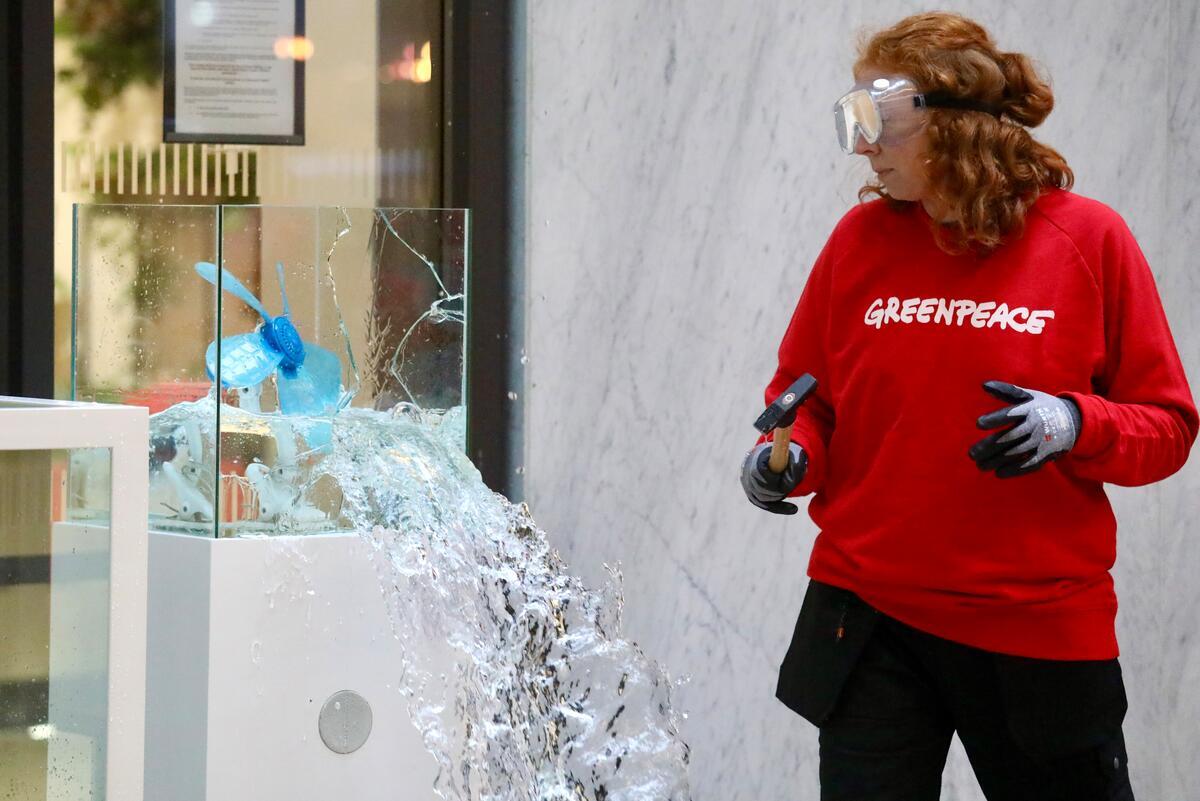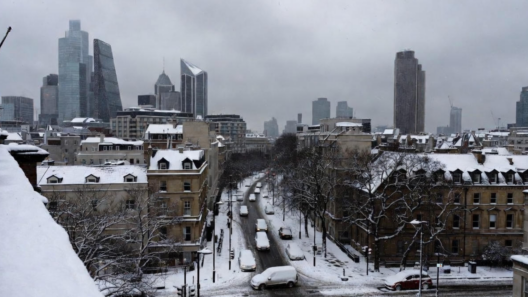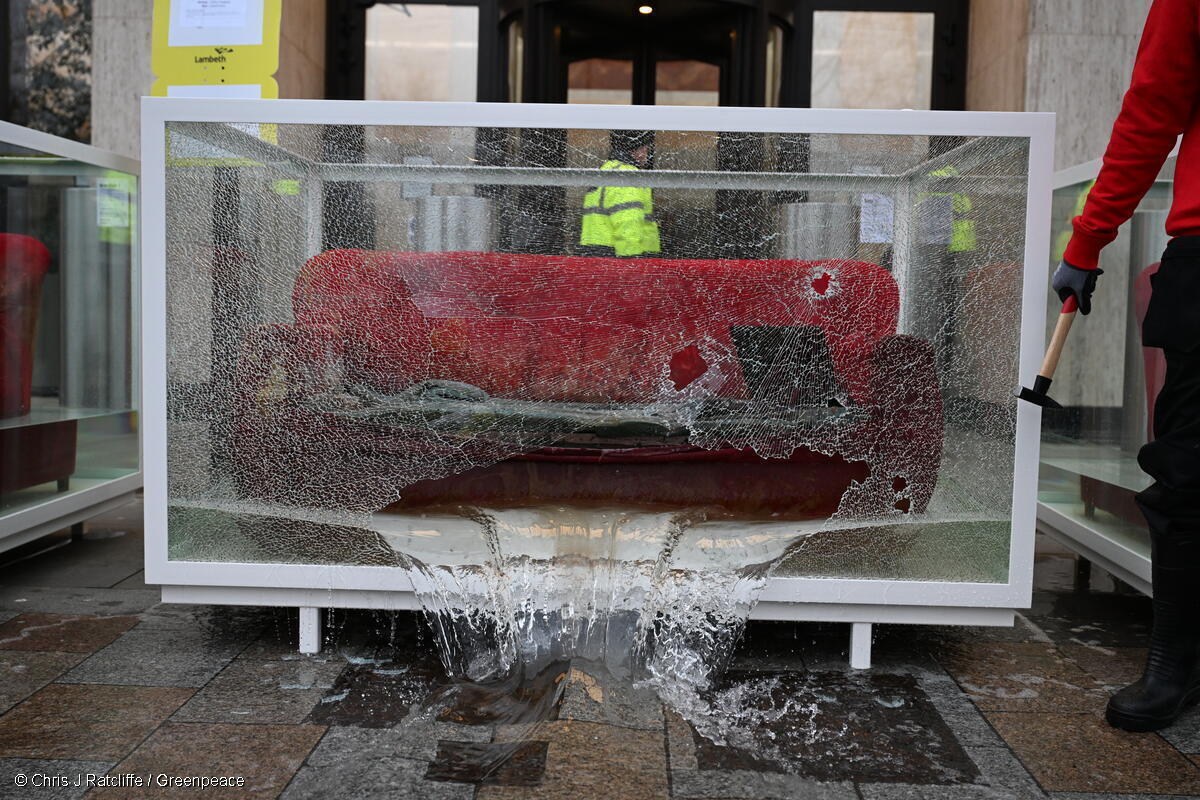Activists Smash Water-Filled Display Cases Outside Shell HQ in Protest Against Climate Destruction
Shell’s headquarters in London just became the unexpected venue for an eerie, immersive protest. This morning, Greenpeace activists surrounded the oil giant’s HQ with a chilling art installation titled Breaking Point: Untold Stories of Climate Loss and Damage. The display featured wrecked possessions from Filipino communities devastated by typhoons, submerged in water-filled cases—until they weren’t. Activists smashed the cases, letting floodwaters spill across Shell’s doorstep.
A symbolic gesture? Yes. A subtle one? Absolutely not.
The protest aimed to expose how oil giants like Shell are profiting from fossil fuels while worsening climate disasters worldwide. With soundscapes shifting from children’s laughter to sirens warning of incoming floods, the performance art piece made it impossible to ignore the human cost of climate change.
A Protest Unlike Any Other at Shell’s London Headquarters
Greenpeace is not known for playing it safe, and this protest took things to a dramatic new level. The installation wasn’t just about making a point—it was about making people feel it.
Encircling all three entrances of Shell’s HQ, 19 display cases contained everyday objects—shoes, a teddy bear, a television—salvaged from typhoon-wrecked homes in the Philippines. These weren’t just props. They were once-cherished possessions, now relics of a climate crisis fueled by corporations like Shell.
The scene became even more surreal when activists took hammers to the cases, shattering the glass and letting water rush onto the pavement. The message was clear: communities in the Philippines don’t get to walk away from the devastation—so why should Shell?
To drive the point home, activists swept broken glass into Shell’s doorways using traditional Filipino tambo brooms before walking away, leaving the wrecked belongings behind.

The Price of Climate Chaos—Paid by the Global South
The Philippines is one of the most climate-impacted countries on the planet. Last year, it endured a record-breaking typhoon season, with six consecutive storms battering communities and displacing millions. Climate experts blame the intensification of these storms on fossil fuel emissions, yet companies like Shell continue to drill for new oil and gas, making billions while vulnerable communities suffer.
Shell’s carbon footprint over the past 50 years is ten times greater than that of the entire Philippines. Let that sink in.
Greenpeace UK climate campaigner Maja Darlington didn’t mince words:
“The world is near breaking point, and it is oil and gas giants like Shell—who pocket tens of billions every year from burning fossil fuels—that are to blame.”
The demand? Make Shell pay for the damage. Instead of continuing to expand oil and gas fields, activists insist that corporations like Shell should be held financially responsible for the typhoons, floods, and droughts they’re fueling.
Filipino Activists Bring Their Fight to London
This protest wasn’t just about making a statement—it was personal. Among the activists was Bon Gibalay, a youth leader from Bohol, Philippines, who witnessed firsthand the destruction caused by climate-fueled typhoons.
“For far too long, communities like mine have suffered climate disaster after climate disaster while Shell continues to profit from destruction.”
Last week, Greenpeace Philippines led a local protest on Batasan Island—a sinking island due to rising sea levels and worsening climate change. In 2021, Super Typhoon Odette obliterated homes and livelihoods there. Today, Filipino campaigners are standing outside Shell’s London HQ, demanding that the company take accountability for the damage it has caused.
The UK Government’s Role: Will They Make Polluters Pay?
There’s strong public backing for holding fossil fuel companies accountable. A recent poll found that 63% of UK voters support taxing oil giants to pay for climate damages. Greenpeace is calling on the UK government to introduce bold new polluter taxes—whether through higher taxes on fossil fuel dividends, taxes on fossil fuel trading, or stricter levies on oil extraction.
With Shell posting $23.7 billion in profits just two weeks ago, it’s clear that they have the funds. The question is whether governments will have the guts to enforce accountability.
Climate Justice: This Fight Is Far From Over
Today’s protest wasn’t just a headline-grabbing stunt. It was a visceral reminder that climate change isn’t a hypothetical crisis—it’s a daily reality for millions.
As Filipino campaigner Jefferson Chua put it:
“The impacts of climate change—fueled by the greed of fossil fuel companies—are bringing communities around the world to breaking point.”
Shell may have washed away the floodwaters outside its London HQ, but the demand for climate justice isn’t going anywhere.







